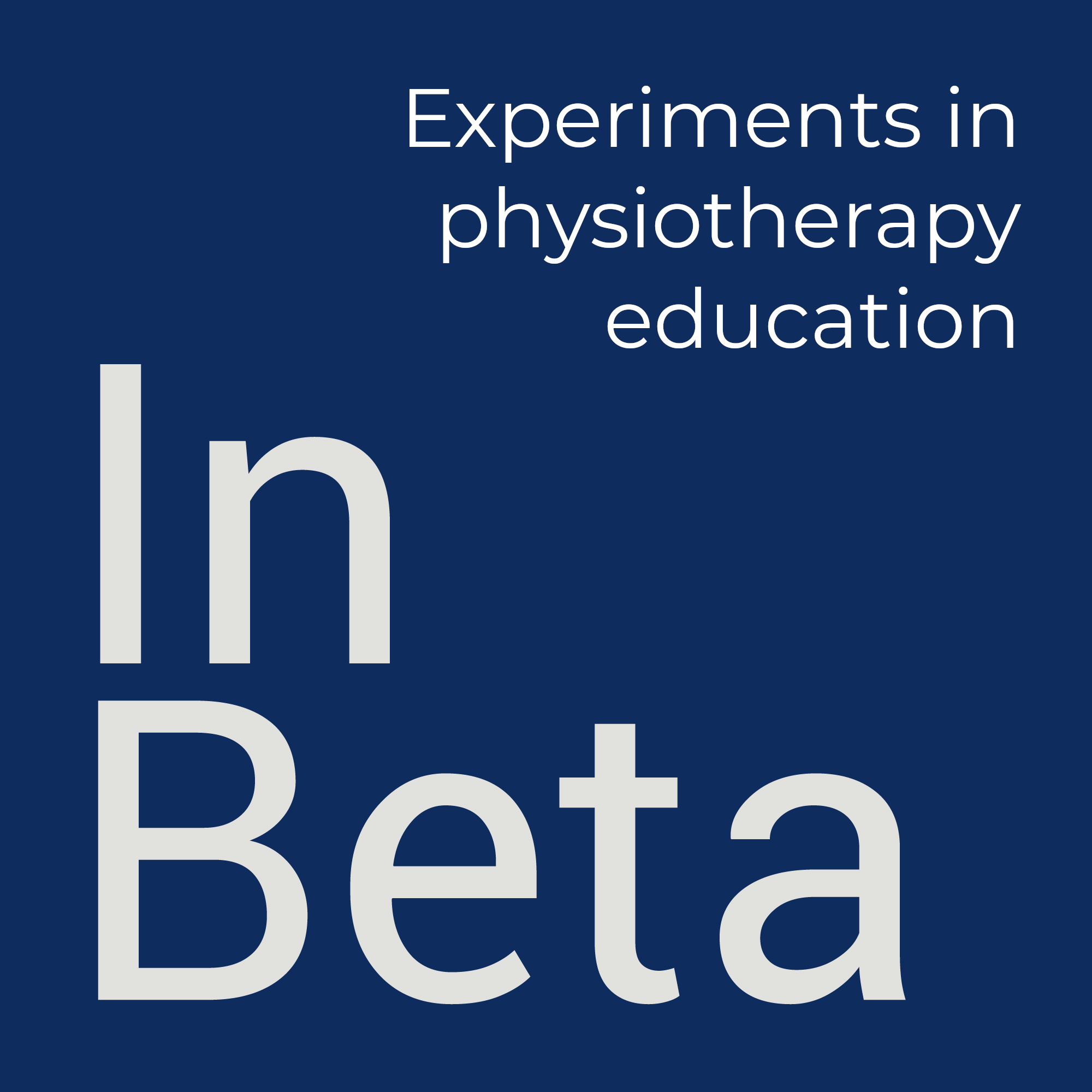
This episode is part of a short series that was published as part of the In Beta 2022 Unconference. Thank you to Shane Pritchard for this contribution.
Recent years have seen a huge growth in the use of simulation in physiotherapy education. It is universally accepted as a good thing, with a sound evidence base and high levels of student satisfaction. But as increasing student numbers and stretched healthcare systems mean that we need to look for ways to replace traditional placement hours in physiotherapy education is there a risk that the definitions of simulation get stretched beyond what the evidence might support? In this conversation we take a critical look at what we mean by simulation and what the key components that make simulation an effective pedagogical approach are in order to prompt reflections on how we should look to incorporate simulation into our curricula.
Additional resources
- Hamstra SJ, Brydges R, Hatala R et al (2014). Reconsidering fidelity in simulation-based training. Academic Medicine, 89(3):387-92
- HETI (2015) The Sim Guide: Templates and tips for simulation based education. NSW Government Health Education and Training Institute
- O’Regan, S., Molloy, E., Watterson, L. et al. (2016) Observer roles that optimise learning in healthcare simulation education: a systematic review. Advances in Simulation, 1:4
How to engage with this podcast for the Unconference
- Listen to the podcast taking breaks in between sections as you wish.
- Make a note of your key reflections and possibly share these with other participants.
- Join a discussion with other unconference participants on the topic and the reflections that it has stimulated.
This podcast includes some discussion around simulation in physiotherapy education and some questions to prompt you to reflect on your responses. We suggest that you listen to the podcast away from your desk. You might choose to listen whilst you go for a walk or a run in your local area, or you could find somewhere to sit and listen quietly away from other screens and distractions.
The podcast is divided into different sections with notices to pause at key moments. You can leave the podcast running and listen to it all in one go, or you can pause the podcast after the notices to make brief notes on your thoughts as you go, but you don’t have to record and share your response to every question.

Shane Pritchard is based in Melbourne, Australia. He works clinically as a physiotherapist at Advance Healthcare, a multidisciplinary pain management clinic specialising in occupational health and complex chronic pain management. Shane is also passionate about health professions education, having completed his PhD in 2020 that investigated innovative simulation-based education approaches for physiotherapy students. He has developed and facilitated simulation-based curricula, research, and faculty development activities since 2011, and holds position of Adjunct Lecturer (Physiotherapy) at Monash University. His current research interests include the role and practice of peer simulation, clinical education in private practice settings, planetary health and education related to healthcare, and persistent and complex pain. Shane is also Director and co-founder of Physiotherapy Education Australia, an organisation that facilitates simulation-based education and mentoring for internationally registered physiotherapists preparing for clinical assessments in Australia.


[…] you’re interested in simulation-based education, check out an earlier episode with Shane on critical perspectives on simulation, recorded for the 2022 In Beta […]